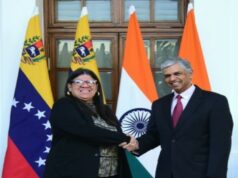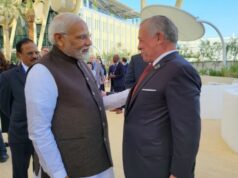“Overall, I do apprehend that if tariffs on pharmaceuticals are raised, it will be a bit of a setback for Indian exporters,” says Abhijit Das, an international trade expert who also headed the Centre for WTO Studies in Delhi for many years.
Das was a guest on The Gist, analysing the Trump tariffs with specific reference to India. As he pointed out, it’s not clear what prompted the US president to signal tariffs on pharma. It could be the $8 billion of Indian pharma imports rankled somewhere or pressure from the pharma lobby in the US that is fiercely opposed to cheap Indian generics.
“The possibility of pressure from lobby groups cannot be entirely ruled out,” Das said, “but when we sit down to negotiate the bilateral trade agreement, we could explore the possibility of getting rid of the formal tariffs.”
India could also look at how to bring down the level of reciprocal tariffs, tell the US about measures it has taken that are in its interests, and it was time to show some consideration for Indian interests.
Given the fact that the international rules based system is now gravitating towards a power-based system, India must not forget it has some leverages of its own. Das calls for rejecting US Intellectual Property Rights if Washington seeks to bend India’s arm rather than look for compromises.
Das pointed to digital trade, an enormously complicated area with the US seeking to grab data through trade agreements. The Indian government needs to be particularly careful when negotiating since it must ensure the interests of its consumers is protected as well as those of the digital sector itself.
India must also be careful when negotiating on agriculture since the livelihood of millions of people depends on it. India cannot afford to allow heavily subsidised US agribusinesses to pauperise its own farmers.
Tune if for more in this conversation with Abhijit Das, international trade expert and former head of the Centre for WTO Studies
Thirty eight years in journalism, widely travelled, history buff with a preference for Old Monk Rum. Current interest/focus spans China, Technology and Trade. Recent reads: Steven Colls Directorate S and Alexander Frater's Chasing the Monsoon. Netflix/Prime video junkie. Loves animal videos on Facebook. Reluctant tweeter.




